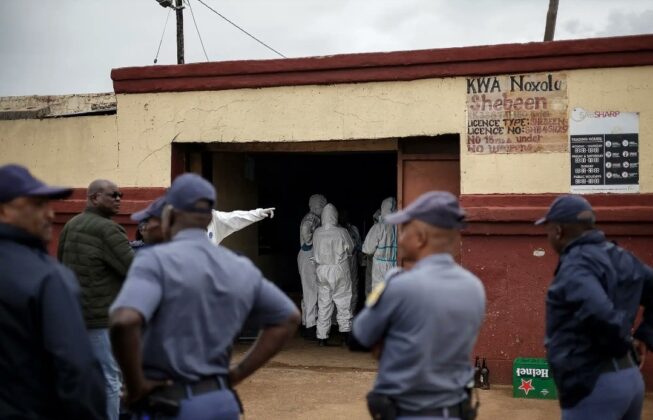
The NICD has urged public to check their children's vaccination status as diphtheria cases increase. Image: National Institute for Communicable Diseases.
(The Post News)– The National Institute for Communicable Diseases (NICD) is urging families to check their children’s vaccination status as they witness a concerning rise in cases of respiratory diphtheria. This outbreak has raised alarms across the country.
According to a statement from the NICD, since the start of 2025, a total of 40 cases of diphtheria, caused by the bacteria Corynebacterium diphtheriae, have been confirmed. Out of these cases, 19 individuals displayed symptoms, while 21 were asymptomatic. The latter group was identified as carriers during contact tracing efforts.
Details of the outbreak reveal that the Western Cape is the most affected region, with 15 confirmed cases. Gauteng follows with two cases, while Mpumalanga has three. Additionally, there is one probable case in Limpopo, which has not been laboratory-confirmed but shows symptoms typical of respiratory diphtheria.
Adults are significantly impacted by this outbreak, with over 78% of cases occurring in individuals aged 18 and older. Alarmingly, nine people have died since early 2024, leading to a troubling case fatality ratio of 27%. The high severity of this disease has emphasised the need for immediate action.
Pregnant women are particularly encouraged to receive the diphtheria vaccine during each pregnancy. This is crucial for protecting newborns from the harsh effects of diphtheria, as well as tetanus and pertussis.
Diphtheria is a contagious and severe illness, but it is preventable through vaccination. Symptoms typically include a sore throat, fever, and swollen glands in the neck. The latter can create a “bull neck” appearance. Medical examinations often reveal an adherent membrane in the throat, known as a pseudomembrane.
If left untreated, diphtheria can obstruct the airway and become life-threatening. The bacterium also produces toxins that can damage the heart, kidneys, and nervous system. Timely treatment with diphtheria antitoxin and antibiotics is critical.
Healthcare workers are advised to remain vigilant for suspected cases and to report incidents using the Notifiable Medical Condition app or the NICD website. The best defense against this disease remains vaccination. Infants should receive their vaccines at 6, 10, and 14 weeks, with booster shots at 18 months, 6 years, and again at 12 years. Public health officials stress the importance of vaccination to protect communities from the resurgence of diphtheria. Now more than ever, it is crucial to ensure everyone is up to date with their immunisations.



